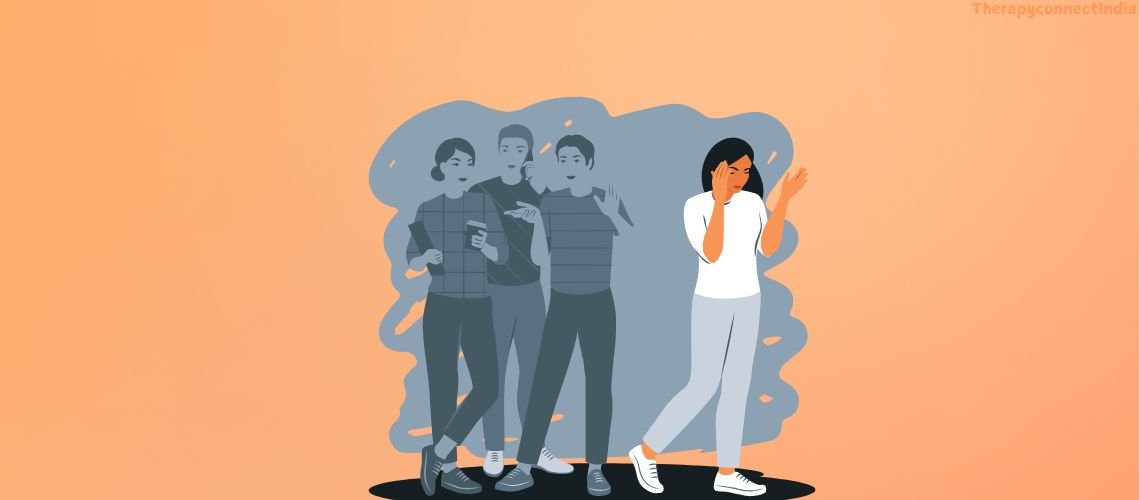Social Anxiety in Adults: Causes, Triggers, and How to Overcome It

Social anxiety in adults is a pervasive mental health condition that makes everyday interactions seem daunting. People experiencing social anxiety often feel intense fear and discomfort in social settings, worried about judgment or rejection. This is not merely shyness; it is deeper and more consuming. Understanding social anxiety is crucial because it affects relationships, career prospects, and overall well-being. Awareness can lead to better management and treatment, allowing individuals to reclaim control over their lives. Recognizing the signs is the first step toward overcoming this challenging condition.
Understanding the roots of social anxiety is crucial to addressing it effectively. While everyone may experience social discomfort occasionally, social anxiety disorder is persistent and overwhelming. It often stems from a combination of genetic, environmental, and psychological factors. Let us dive deeper into these causes.
Genetics can play a significant role in the development of social anxiety disorder. If someone in your family has a history of anxiety or mental health issues, you might be more predisposed to experiencing social anxiety yourself. Studies suggest that genetics contribute to up to 30 to 40 percent of the likelihood of developing this disorder. This does not mean you are destined to have it, but it highlights the importance of understanding your family’s mental health history.
Environmental factors shape our behaviours and how we respond to social situations. Negative experiences such as bullying, ridicule, or being ostracized during childhood can drastically increase the risk of developing social anxiety as an adult. Moreover, growing up in an environment marked by excessive criticism or lacking emotional support can engrain feelings of inadequacy and heightened self-consciousness. In contrast, supportive and nurturing surroundings can bolster confidence and social skills.

Psychological factors also significantly contribute to social anxiety. Low self-esteem, intense fear of judgment, and a tendency to overanalyse social interactions can exacerbate feelings of anxiousness. Many adults with social anxiety possess unrealistic expectations of social standards and pressure themselves to attain perfection in social settings. Such psychological tendencies create a cycle of anxiety and avoidance that can be hard to break.
Recognizing what triggers social anxiety is the first step in managing it. Triggers vary from person to person, but several common situations can provoke symptoms.
Social anxiety often rears its head in social settings where interaction is unavoidable. From small gatherings to bustling events, the thought of engaging in conversation, maintaining eye contact, or simply being in a crowd can be daunting. This anxiety often stems from the fear of being judged or making a social blunder. Such settings can trigger symptoms like sweating, trembling, or a racing heart, making it essential to identify particular situations that cause distress.

Building and maintaining relationships are integral parts of life, yet they are significant anxiety triggers for many. Whether it is meeting new people, forging deeper bonds, or even maintaining existing friendships, social anxiety can hinder these connections. Fear of rejection or inadequacy can cause individuals to unknowingly self-isolate, potentially leading to loneliness and further exacerbating their anxiety. Recognizing these triggers enables individuals to tailor strategies to foster healthier interactions.
The most recognized trigger of social anxiety is public speaking or any form of performance pressure. The fear of speaking in front of an audience, whether it is colleagues at work, classmates in school, or strangers in a crowd, can be intensely overwhelming. The pressure to perform well and not make mistakes can lead to debilitating anxiety. These instances often trigger a "fight or flight" response, causing sufferers to avoid opportunities that require public speaking altogether. Being aware of these triggers can guide sufferers in developing coping mechanisms and seeking professional help if needed.
Understanding these causes and identifying the triggers of social anxiety are vital steps in the journey to overcoming it. Recognizing these elements assists individuals in pinpointing areas that require attention and addressing the nuances of their anxiety with greater clarity. Whether through self-help techniques or seeking therapy, these insights empower individuals to reclaim control over their mental health.

Confronting social anxiety as an adult requires intentional and effective strategies. Understanding these strategies can transform fear into confidence. Let us delve into some proven methods for conquering social anxiety.
Cognitive Behavioural Therapy (CBT) is one of the most effective treatments for social anxiety. It involves identifying negative thought patterns and challenging them with evidence-based logic. Here's how CBT helps:
CBT empowers individuals by changing their perception of social situations, enabling them to handle anxiety-provoking situations with more ease.

Practicing mindfulness and relaxation techniques can significantly reduce anxiety symptoms. Stress reduction is critical in managing social anxiety, and these techniques provide a calm and centred approach to tackle the root cause:
These methods equip individuals to better manage their physiological responses to anxiety triggers, leading to a more serene mindset.

Improving social skills can eliminate the fear of judgment in social interactions. This approach involves stepping out of your comfort zone but is crucial in overcoming social anxiety:
Through persistent practice, adults can refine social skills, making anxiety feel less daunting and social interactions more enjoyable. Embrace these strategies to gain mastery over social anxiety.

In summary, social anxiety in adults is a common but manageable condition. Understanding its causes and triggers is essential for those affected. By acknowledging the issue, one can act through self-help strategies or professional therapy. Techniques such as gradual exposure to social situations, cognitive behavioural therapy, and mindfulness can significantly aid in overcoming anxiety. Remember, taking that first step towards confronting social anxiety is crucial. Support and resources are available, and recovery is within reach.
These resources provide valuable information, support, and tools for understanding and managing social anxiety in adults.